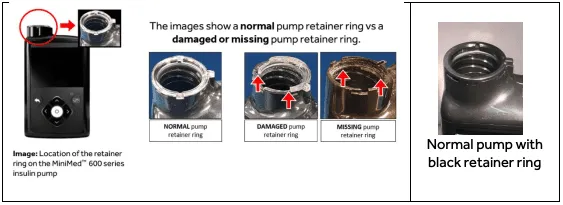Get a Free Consultation
2 minute response
24 hours a day, 7 Days a Week
Dedicated Trust Guss Intake Team
Nearly half a million Medtronic insulin pumps are now the subject of a massive recall and mounting lawsuits due to defects that have been associated with severe injuries and death. The devices in question are the Medtronic MiniMed™ 600 series insulin pumps, which can reportedly overdose and underdose diabetes patients with insulin. While Medtronic, Inc. has already been named as a defendant in several lawsuits filed by patients nationwide, many others who have not yet taken action may still have time to assert their rights, file a claim, and seek justice.
We Win or You Pay Nothing
We have staff standing by at all hours to help you.
Immediate Medical Care
Receive the treatment you need, as soon as you need it, with usually no out-of-pocket cost to you.
24/7 Access to Us
Speak with a real human being, no matter what time it is.
Client Satisfaction
Enjoy working alongside a firm with a sterling reputation for 1,400+ 5-Star Reviews.

The experienced defective device lawyers at Trust Guss Injury Lawyers are currently investigating Medtronic insulin pump claims. Skilled at standing up to negligent medical device makers, we know what it takes to win these cases and help victims just like you recover from their insulin pump injuries.
To get answers about your rights and how to proceed, explore this helpful guide on Medtronic insulin pump problems, injuries, lawsuits, and more. For additional information and confidential advice, contact our defective insulin pump attorneys. We offer zero-cost, zero-obligation case evaluations for potential MiniMed insulin pump claims, and we are honored to help victims seek the justice and recoveries they deserve.
MiniMed insulin pumps are designed to manage and treat type 1 diabetes in patients 16 and older. While Medtronic makes various models of insulin pumps, the 600 series was developed to automatically monitor glucose levels, delivering insulin via a “closed loop” system.
Central to the design and function of the 600 series insulin pumps are clear retainer rings that lock the insulin cartridges in place.
According to authorities, the problem with the MiniMed insulin pumps arises from:

Incorrect insulin doses from defective MiniMed insulin pumps can result in some severe injuries, including:
Hypoglycemia and hyperglycemia can both progress to deadly stages without intervention and the proper medical treatments.
On November 21, 2019, Medtronic, Inc. recalled roughly 463,460 MiniMed insulin pumps in the U.S. With this recall, authorities also announced that they had received upwards of 26,000 reports of malfunctioning MiniMed insulin pumps, including thousands of patient injuries.
The models and distribution dates for the affected devices are featured in the table below.

With life-threatening and fatal injuries linked to MiniMed insulin pumps, the U.S. Food and Drug Administration (FDA) elevated this response to a Class I recall, the most serious type of recall for medical devices and drugs. At the time, patients were advised to:
On October 5, 2021, Medtronic, Inc., updated its recall for the MiniMed insulin pumps, notifying patients that they should replace any insulin pump that has a clear retainer ring, regardless of whether that retainer ring was damaged. The company explained that it would replace the older devices with newer ones that feature black retainer rings, “regardless of the warranty status of the pump.” Patients can request replacement devices here or by calling 1-877-585-0166.
Tragically, the 600 series MiniMed insulin pumps are not the only devices that Medtronic has had to recall due to issues that have allegedly harmed patients. In fact, over the years, Medtronic has been at the forefront of several recalls, including (but not limited to) recalls in:
Remarkably, insulin pumps are one of the riskiest medical devices on the market when looking at patient injury reports. In fact, one investigation found that:


Thousands of MiniMed insulin pump lawsuits have already been filed against Medtronic, Inc., generally alleging that:
As of December 2022, the pending MiniMed lawsuits against Medtronic have not been consolidated into multidistrict litigation (MDL). Nevertheless, this action may be ordered if additional claims are filed in the coming months.
Regardless of whether an MDL is formed, these insulin pump lawsuits filed by patients are just one set of legal actions that Medtronic is now fighting. Additionally, the company is also facing off with investors who have accused Medtronic of lying about the insulin pumps’ safety issues in an effort to inflate the value of the
If you or someone you love has experienced serious injuries that have been linked to a Medtronic MiniMed insulin pump:
A trusted mass tort lawyer at Trust Guss Injury Lawyers is ready to explain your rights, share important advice, and help you 24/7. CLICK HERE for your free insulin pump case evaluation now.
2 minute response
24 hours a day, 7 Days a Week
Dedicated Trust Guss Intake Team

